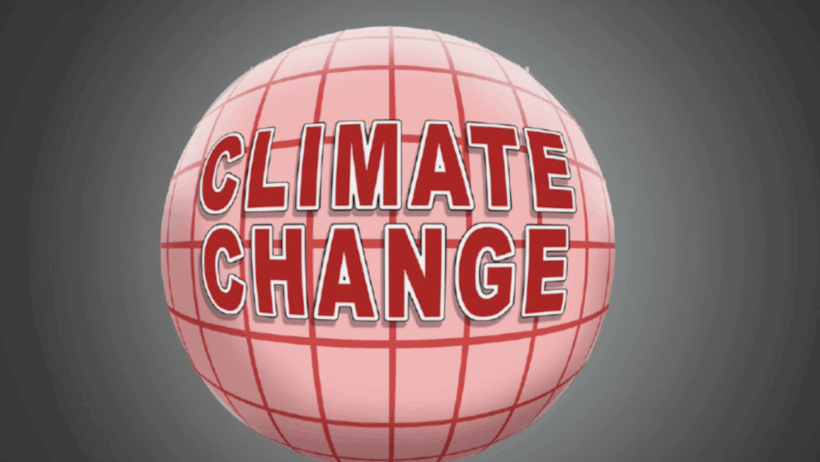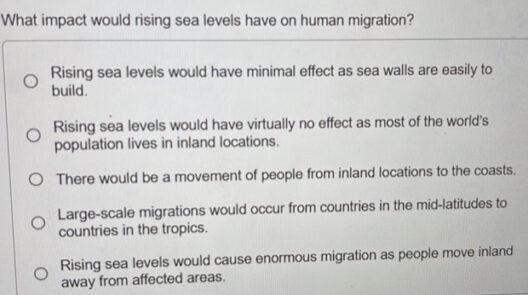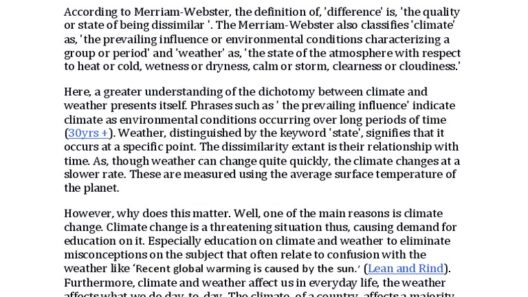In recent years, the debate surrounding climate change has intensified, with some individuals positing that it is a fabricated concern. This notion, often encapsulated in the phrase “climate change is a hoax,” has garnered traction in various circles, igniting impassioned discussions. However, rather than dismissing this contention outright, it’s imperative to dissect the underlying motivations and judgments that propel such claims. What prompts some to view a pressing global issue through a lens of skepticism? Understanding these dynamics paves the way for a more informed dialogue.
The scientific community has unequivocally demonstrated that climate change is not merely a speculative idea; it is a reality ground in empirical data. Global temperatures average have risen significantly, with the last decade experiencing unprecedented levels of warmth. According to scientific organizations across the globe, including NASA and the Intergovernmental Panel on Climate Change (IPCC), the evidence is robust and compelling.
In this discourse, we must confront several pervasive myths that contribute to the belief that climate change is a hoax.
The Foundations of Scientific Consensus
To fully understand the gravity of climate change, one must first appreciate the overwhelming consensus among scientists. In a survey conducted by the Pew Research Center, over 97% of climate scientists agree that human activities are the primary contributors to global warming. This harmonious agreement is not an arbitrary coincidence; rather, it stems from decades of intensive research, innovative methodologies, and rigorous peer reviews. The collection of data — from rising sea levels to extreme weather events — consistently aligns with predictive models indicating that greenhouse gas emissions are exacerbating global temperatures. Critics often highlight the existence of dissenting voices within the climate science community, but such divergent opinions usually lack the substantial backing compared to mainstream scientific findings.
Yet it is this very consensus that some individuals challenge, leading to a dichotomy of credence in the scientific community. The allure of conspiracy theories can be captivating. They provide a narrative that is both mentally stimulating and combative, offering an alternative framework for understanding complex issues. This attraction to the concept of a hoax is a psychological phenomenon, akin to a quest for coherence in an otherwise chaotic world. Such theories often flourish in environments punctuated by distrust in institutions, sparking intrigue and mobilizing individuals around a common cause, albeit one built on fallacies.
The Role of Misinformation
Misinformation has become a formidable adversary in the climate change narrative, thriving in the age of the internet and social media. As information flows rapidly, distinguishing factual content from misleading assertions has become increasingly complex. Numerous entities exploit this digital landscape to disseminate falsehoods, asserting that climate change is exaggerated or non-existent. These claims often draw on anecdotal evidence, cherry-picking data points that may support their premise while neglecting the broader context.
Furthermore, the ambiguity of scientific findings can be manipulated by those untrained in climate science. By misconstruing studies or citing data out of context, misinformation campaigns sow confusion. For instance, while some argue for historical climate fluctuations, they fail to account for the unprecedented rate of current changes exacerbated by human activities. The conflation of short-term weather variability with long-term climate trends is another deceptive tactic used by skeptics, further muddying the waters of understanding.
The Economic Underpinning of Doubt
One cannot discuss the climate change debate without acknowledging the economic factors intertwined with it. The fossil fuel industry, a substantial contributor to greenhouse gas emissions, significantly shapes public perception and policy. As awareness of climate change grows, so does the threat to industries dependent on fossil fuels. Financial stakes create a fertile ground for skepticism, as corporations and stakeholders may invest in discrediting climate science to safeguard their interests.
This intertwining of economics and skepticism fuels a compounding cycle, wherein denial is economically advantageous for some while deleterious to global progress. The incoming pressure to rein in emissions engenders a defensive posture among those within the fossil fuel sector, often translating into significant lobbying efforts aimed at influencing policy and public opinion. In contrast, environmental advocates stress a transition to renewable energy as not only crucial for the planet’s health but also a lucrative frontier for economic growth and innovation.
Engaging with the Realities of Climate Change
When moving beyond the myths, it becomes vital to engage with the tangible realities of climate change. The consequences are palpable and extensive, manifesting in various aspects of life. Natural disasters have become more frequent and severe, with hurricanes, wildfires, and droughts wreaking havoc across continents. The resulting crises are not only environmental; they pose substantial threats to public health and economic stability. Vulnerable populations suffer the most, exacerbating existing social inequalities and igniting debates about climate justice.
It becomes increasingly clear that disbelief in climate change operates on a spectrum. While some might vehemently assert that it is a hoax, many others may simply be misinformed or lack a comprehensive understanding of scientific data. Therefore, creating a transparent dialogue is crucial. It requires acknowledging differing opinions while also reiterating the overwhelming evidence underpinning climate science. Educational initiatives that foster critical thinking and offer accurate, accessible information will be fundamental in changing public perceptions.
As we navigate this complex minefield of beliefs about climate change, it remains paramount to differentiate fact from fiction. The battle against misinformation, economic interests, and psychological predispositions encourages a vigilant approach. By continuing to elevate the discourse grounded in scientific reality, society can work collectively towards actionable solutions and empower individuals to confront the ongoing challenges posed by our changing climate.







